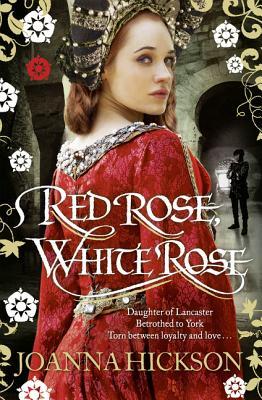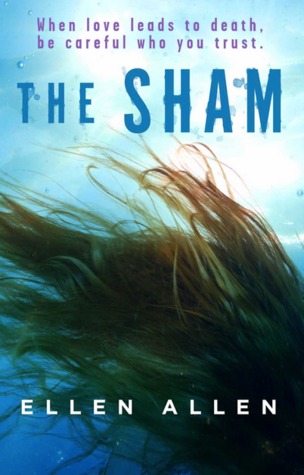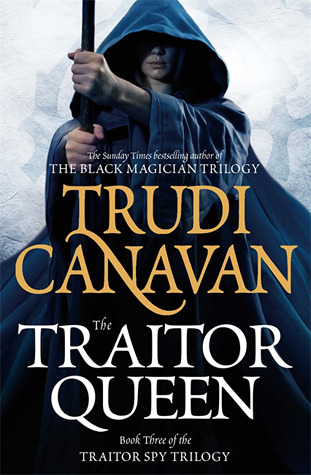
Book Title: Red Rose, White Rose
Author: Joanna Hickson
Date Started: November 8th 2014
Date Completed: November 30th 2014
Genres: Historical, Romance
Rating: Four stars
Review:
Thank you to HarperFiction for providing me with this copy to review.
Stay tuned for a very special Q&A with Joanna, coming December 11th!
Image Sources: HarperFiction
Thank you to HarperFiction for providing me with this copy to review.
Because I wasn't really aware of the actual history of The War of the Roses, I didn't really know what was going on outside of the narration - which probably meant I missed out on a quite a lot of the story. Even so, I did enjoy most of this book, despite not being completely aware of consequences not witnessed by the narrators.
Cicely Neville is the youngest daughter of the Ralph Neville, and has been betrothed to Richard, Duke of York. And as power shifts in the years following her marriage, Cicely could become the most powerful woman England. But on top of the conflict between the White Roses of York and the Red Roses of Lancaster, Cicely has a dark secret which will cause her dire consequences in the future.
At first, I found Hickson's writing a little bit jerky and hard to get along with, but after I'd moved further into the story and was comfortable with the characters and their positions, I found that actually I really enjoyed the dual narrative. The only issue I really had with the writing was the vast amount of historical detail - which isn't a bad thing thing at all - but the fact that it was dumped onto the reader as facts throughout the entire book. I would've much preferred to have perhaps a little less detail communicated through the narrative or speech rather than just stated on the page.
The story arcs, in my opinion, are the best thing about this book. Because the story spans over such a huge amount of time (something I'll get to in a second), we see the characters develop an awful lot. This made things more exciting for me, because I didn't know how events would affect the people and therefore who they would react. The downside of this massive time span was that everything just wasn't focused on enough. Far too much was tried to be packed into a 500 page book so I didn't understand how certain things impacted overall. Again, I might have understood this better if I knew the history, but since I didn't, I struggled to appreciate the storyline.
Another thing I really would've liked to read about would be the politics; there's so much history packed into the story, but perhaps due to the situation the characters are in, the politics aren't really looked at - or I just didn't understand them when they were put in with everything else. This again made it really hard to understand the story because I didn't know the history.
However, towards the middle of the novel, I really started to enjoy it: I knew the characters, I was vaguely aware of the story and consequences and I had gotten used to the writing style. When things got complicated towards the end, I got lost again, but I appreciated the last few chapters despite not really knowing why things were happening. Basically, if you know the history, I think you'll really enjoy it. If you don't, you're going to have a bit of trouble with the understanding.
The characters were the element that I think people that didn't know the history could really get invested in, because you can follow their whole journey and understand where they're coming from.
Cicely was a brilliant character I think, especially because of her arc and development throughout the story. She wasn't really a very nice person, and because of this I felt that her actions were a lot more realistic and understandable, and I also assume it's true to the history.
Cuthbert narraters the other half of the book, and I have to say I was more interested in Cicely's half-brother's story. This was due to the fact he's involved in a lot more action rather than the household, and that interests me more. Hilda, who's featured in both but I think is more impactful on Cuthbert's story, was my favourite character because it's clear she knows a lot more than she lets on.
I think the pacing of this book depends on how much the reader knows and understands about The War of the Roses. Being pretty much entirely unaware of the events of the 1400s, I think I found chapters that were explaining key points fairly boring just because I didn't know what was going on. But, if I'd already known a little more about the circumstances I probably could've appreciated the deal more.
Red Rose, White Rose is a great novel about The War of the Roses, but it'd probably be a good idea to brush up on your history before you try diving into the story to avoid confusion. I would say that patience is needed and younger readers probably wouldn't get along and/or find it appropriate at times.
Stay tuned for a very special Q&A with Joanna, coming December 11th!
Image Sources: HarperFiction


